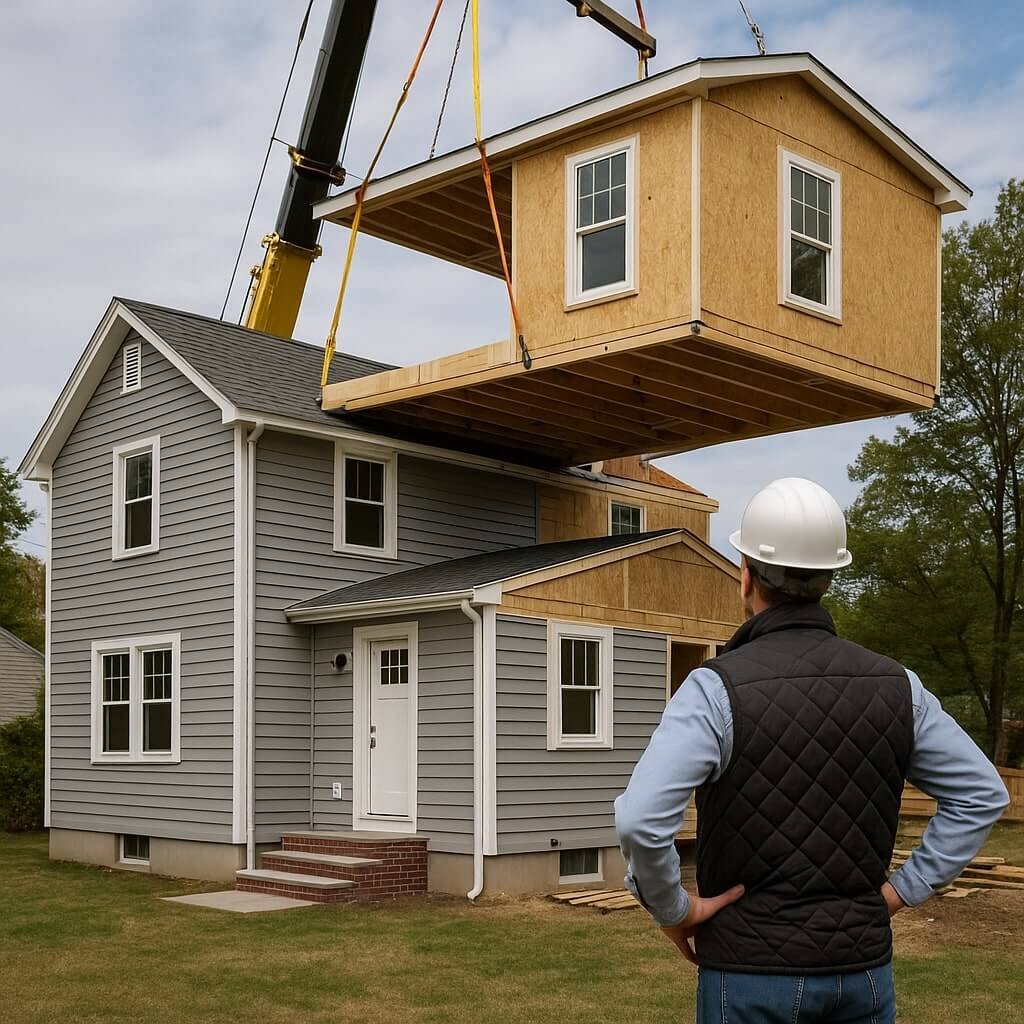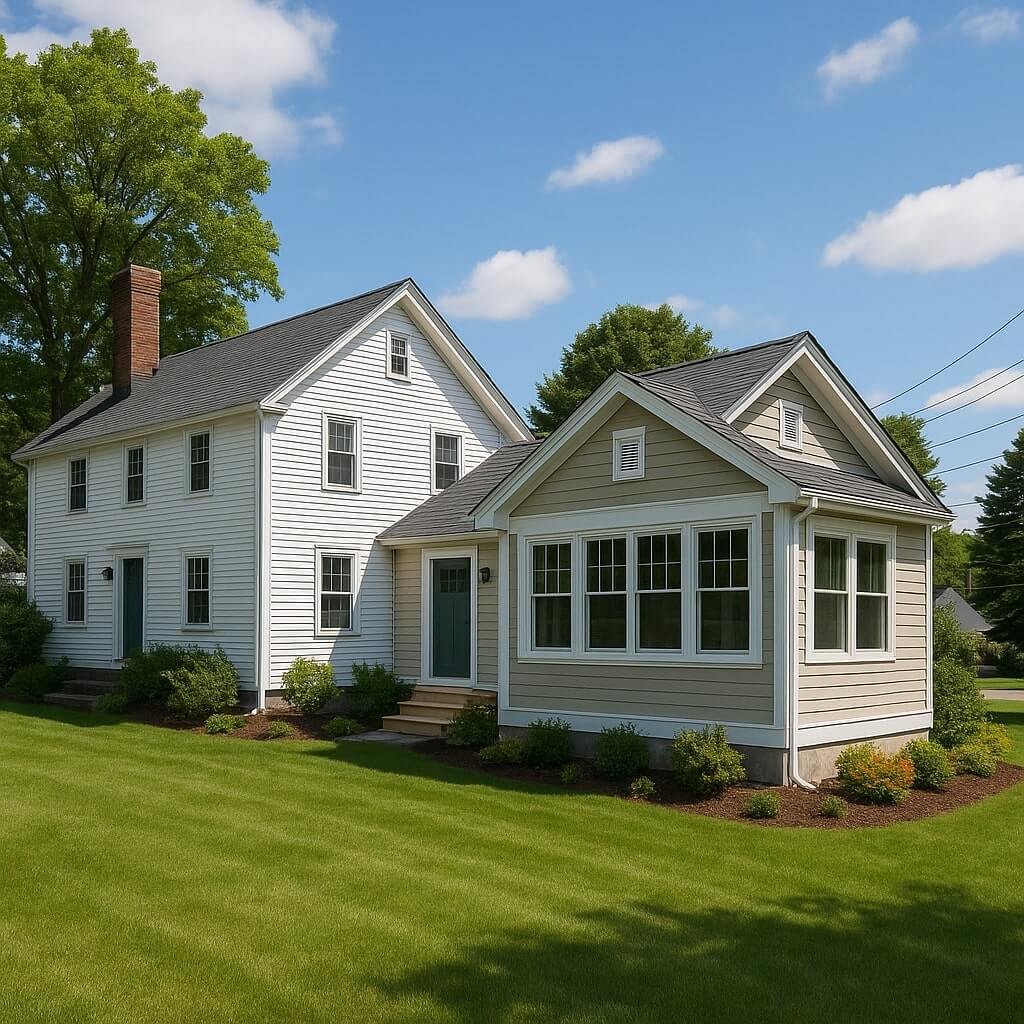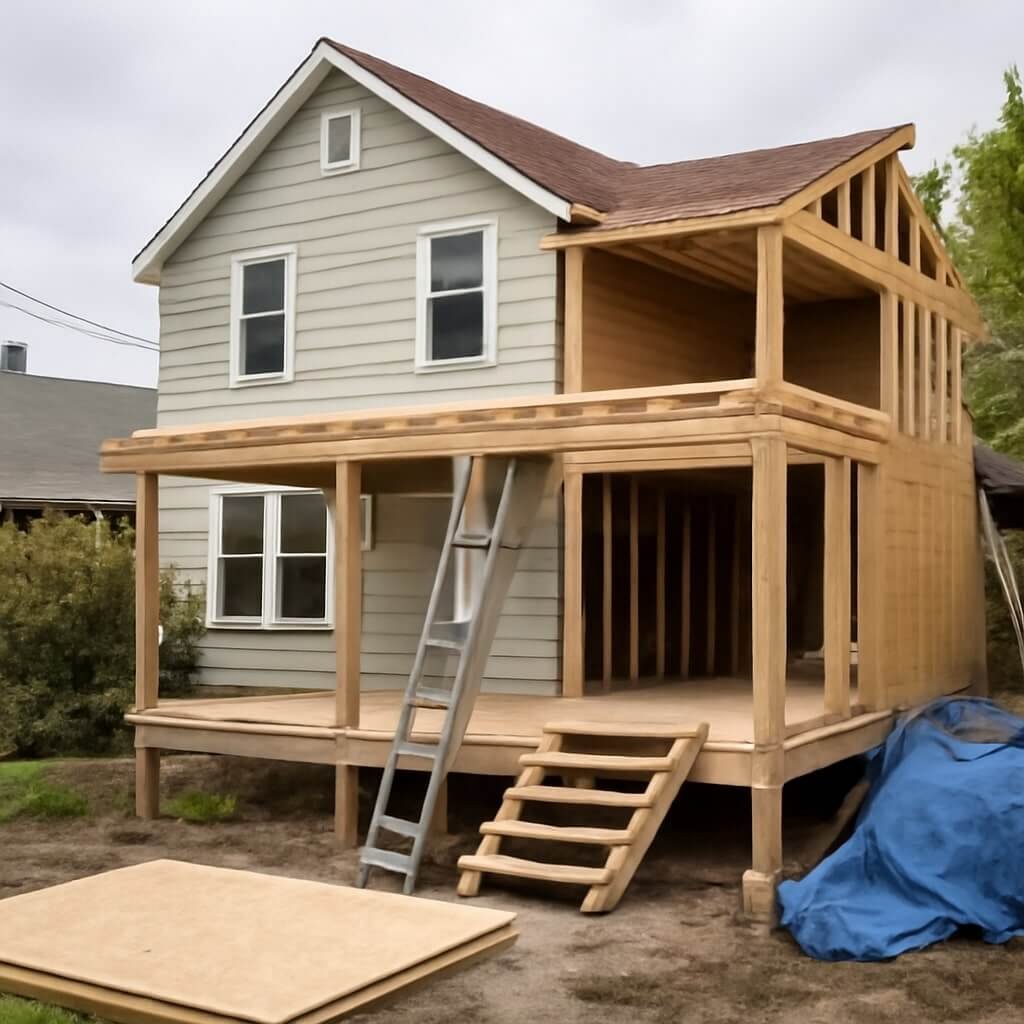When you’re considering a contractor for modular additions to your home, it’s essential to focus on their experience and expertise in similar projects. You’ll want to assess their understanding of local regulations and how they communicate throughout the process. Checking references and online reviews can provide insight into their reliability. But there’s more to unpack, especially regarding licensing and estimates. Understanding these factors will help you make an informed decision. What else should you keep in mind?
Key Takeaways
- Review the contractor’s portfolio for diverse modular addition projects and relevant industry certifications.
- Check references and client testimonials to gauge contractor reliability and workmanship quality.
- Assess communication skills and responsiveness to ensure a collaborative working relationship.
- Verify valid licenses and insurance to comply with local regulations and protect against liabilities.
- Compare detailed estimates and project timelines for transparency and accuracy in costs and schedules.
Assessing Experience and Expertise

When it comes to selecting a contractor for your modular addition, prioritizing experience and expertise is essential.
Start by reviewing their project portfolio. A diverse array of completed projects showcases their ability to handle various designs and challenges. Look for industry certifications, as these indicate a commitment to quality and staying updated with best practices.
A seasoned contractor understands local regulations and can navigate potential obstacles smoothly. Don’t hesitate to ask about their experience with modular additions specifically; it has unique requirements.
Checking References and Reviews
How can you guarantee that the contractor you choose is the right fit for your modular addition? Start by checking client testimonials and online ratings.
Reach out to past clients to gain insight into their experiences. Ask specific questions about the contractor’s workmanship, timeliness, and communication.
Online reviews can provide a broader picture of their reputation. Look for patterns in feedback—frequent compliments or complaints can guide your decision.
Don’t hesitate to ask the contractor for references; a reliable professional will be happy to share.
This due diligence ascertains you’re making an informed choice for your home project.
Evaluating Communication and Collaboration
After checking references and reviews, the next step is to assess how well the contractor communicates and collaborates with you.
Effective feedback is essential during the project, so observe how the contractor responds to your questions and concerns. You’ll want someone who listens actively and adapts to your needs.
Observe how the contractor addresses your questions; an active listener will adapt to your needs effectively.
Establishing clear expectations from the start guarantees both parties are aligned, reducing misunderstandings and delays. Schedule initial meetings to gauge their communication style and willingness to engage in discussions.
A contractor who values collaboration can make your modular addition process smoother and more enjoyable. Choose wisely for a successful partnership.
Understanding Licensing and Insurance Requirements

Understanding the licensing and insurance requirements is essential, as these factors can greatly impact the success of your modular addition project.
You need to guarantee that your contractor meets local licensing regulations and carries appropriate insurance coverage.
Here are three key points to take into account:
- Verify Licensing: Confirm that your contractor holds valid licenses required in your area.
- Check Insurance: Ensure they’ve liability and workers’ compensation insurance to protect you from potential liabilities.
- Request Documentation: Ask for proof of both licensing and insurance to avoid future complications.
Taking these steps will help secure a smooth construction process.
Comparing Estimates and Project Timelines
Once you’ve confirmed that your contractor meets the necessary licensing and insurance requirements, the next step is to compare estimates and project timelines.
Request detailed cost breakdowns from each contractor, so you can understand the pricing structure clearly. Look for transparency regarding materials, labor, and any additional fees.
Assess timeline accuracy by asking how long each phase of the project will take and if they account for potential delays. A reliable contractor should provide a realistic schedule and be upfront about any uncertainties.
This comparison helps guarantee you choose the best fit for your modular addition needs.
Conclusion
When choosing a contractor for modular additions, prioritize experience and expertise to guarantee quality work. Don’t skip checking references and online reviews, as they provide insights into reliability. Effective communication is essential, so look for someone who collaborates well with you. Verify they have the necessary licensing and insurance for your protection, and always compare estimates and timelines to find the best fit for your project. Taking these steps will help you achieve a successful addition to your home.


